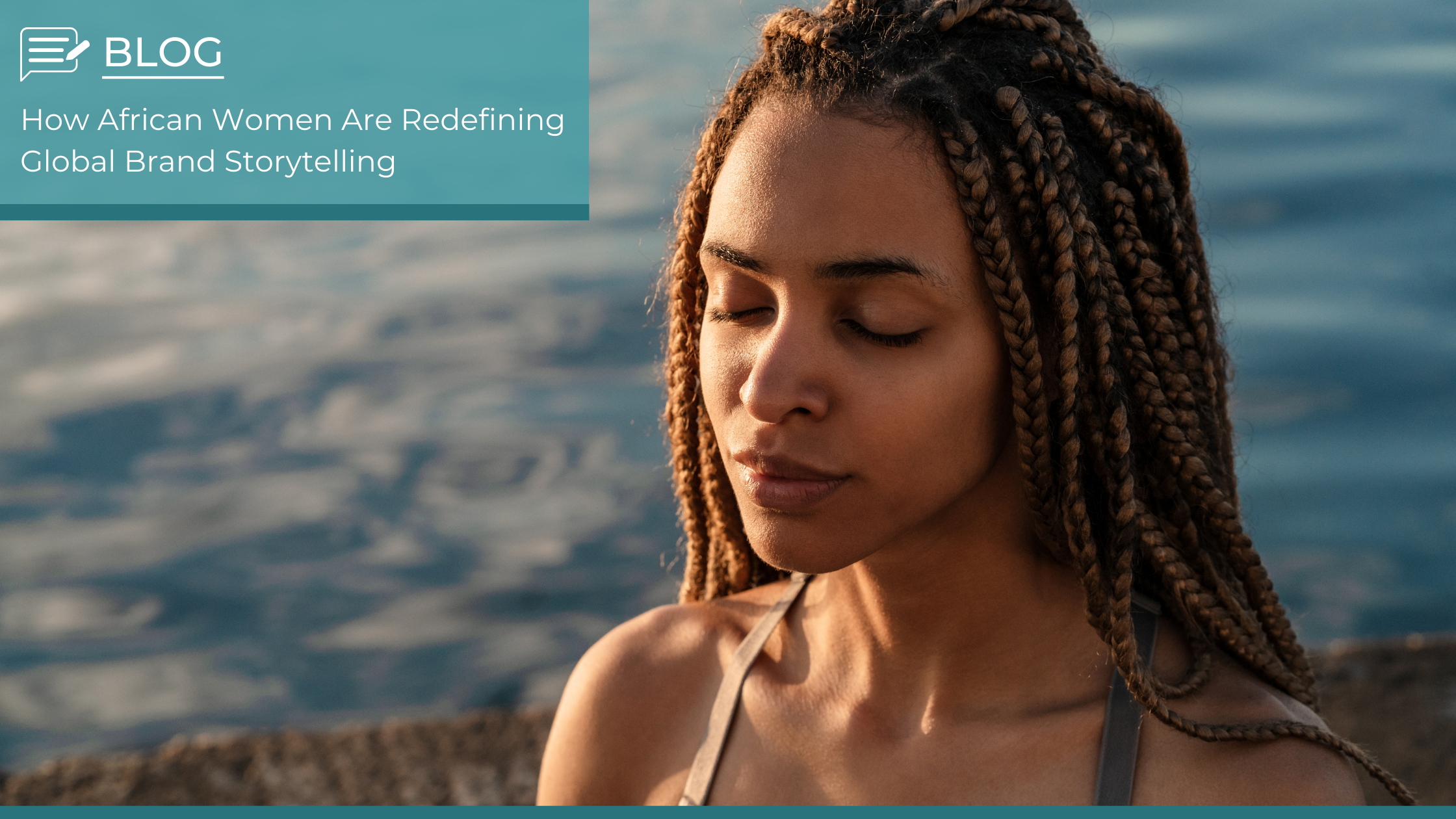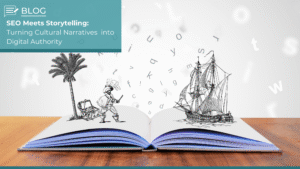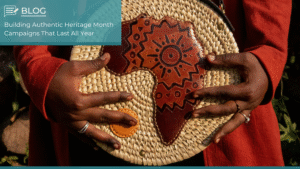An examination of the paradigm shift transforming African marketing through women-led narrative architecture
The Griot’s Inheritance: Where Ancient Wisdom Meets Modern Marketing
In the dusty courtyards of West African villages, the griot (the traditional storyteller) once held the power to shape empires through narrative. Their words could elevate kings or topple dynasties, preserve lineages or erase them from collective memory. Today, across the bustling creative hubs of Lagos, Cape Town, Nairobi, and Accra, a new generation of griots has emerged. They carry laptops instead of kora harps, speak in brand strategies rather than praise songs, and increasingly, they are women.
This isn’t merely a demographic shift in African marketing (it represents a fundamental reimagining of how brands connect with one of the world’s most dynamic consumer markets. As African women ascend to leadership positions in creative agencies, marketing departments, and brand consultancies, they’re not simply executing existing playbooks. They’re rewriting the rules of engagement entirely.
“What we’re witnessing across African markets isn’t just the rise of women in marketing leadership (it’s the emergence of an entirely new strategic paradigm. Women are bringing cultural fluency and emotional intelligence to brand building in ways that create sustainable competitive advantages. The brands that recognise this shift first will dominate the next decade of African commerce.”
Delarey van Dyk, Managing Director
Beyond Representation: The Architecture of Authentic Narrative
The transformation occurring across African marketing departments transcends the surface-level diversity initiatives that have dominated Western corporate discourse. While global brands have focused on representation metrics (counting faces in campaigns and measuring diversity ratios), African women marketers have been quietly engineering something far more profound: authentic narrative architecture.
This approach recognises that storytelling in African contexts cannot be divorced from cultural truth. It acknowledges that effective brand communication requires not just cultural awareness, but cultural fluency (the ability to navigate the complex intersections of tradition and modernity, urban aspiration and rural rootedness, individual agency and collective responsibility that define contemporary African life.
Consider the strategic implications: When MTN Nigeria‘s campaigns began incorporating Yoruba storytelling structures, engagement rates didn’t just improve (they transformed. When Safaricom’s M-Pesa messaging evolved from functional utility to communal empowerment narratives, the service transcended transaction to become social infrastructure. These weren’t accidents. They were the deliberate outcomes of women-led creative strategies that understood culture as a competitive advantage.
The Empathy Advantage: Emotional Intelligence as Strategic Asset
The rise of women in African brand narratives has introduced a critical strategic element often overlooked in traditional marketing frameworks: the systematic deployment of emotional intelligence as a competitive differentiator. This isn’t about feminine intuition or gender essentialism (it’s about recognising that emotional intelligence, when properly channelled, creates measurable business outcomes.
Research from the African Development Bank indicates that brands demonstrating high emotional intelligence in their communications achieve 23% higher customer lifetime value across sub-Saharan markets. This advantage becomes even more pronounced when examining the purchasing patterns of African women, who control an estimated 65% of household spending decisions across the continent.
Women marketers bring a relational approach to brand building that prioritises long-term community engagement over short-term conversion metrics. This manifests in campaigns that feel less like interruptions and more like conversations (a critical distinction in markets where trust remains the primary currency of commerce.
Take She Leads Africa’s approach to corporate partnerships. Rather than traditional sponsorship models, they’ve pioneered “co-creation frameworks” where brands collaborate with their community to develop solutions that address real challenges. The result? Partner brands like Standard Bank and Google report engagement rates 40% higher than traditional campaign models, with significantly improved brand sentiment scores.
Cultural Fluency as Competitive Moat
The most strategically sophisticated aspect of women-led African brand narratives lies in their treatment of cultural context not as a constraint, but as a competitive moat. Traditional marketing approaches often view cultural specificity as a barrier to scalability (something to be minimised or homogenised for broader appeal. Women marketers across the continent have inverted this logic entirely.
They recognise that in an increasingly connected world, authenticity becomes scarce (and therefore valuable. By creating campaigns that are deeply rooted in specific cultural contexts, they’ve discovered that relevance, rather than being limited by specificity, is enhanced by it.
Nando‘s South Africa exemplifies this principle. Under women-led creative direction, their campaigns have become cultural commentaries that tackle everything from load-shedding to political corruption with a uniquely South African sense of humour. The result isn’t just local relevance (it’s global recognition. Their campaigns regularly win international awards precisely because they refuse to dilute their cultural specificity.
This approach represents a sophisticated understanding of how globalisation works in practice. Rather than homogenisation, successful global brands achieve resonance through what cultural theorist Roland Robertson terms “glocalisation” (the ability to adapt global concepts to local contexts in ways that feel both familiar and fresh.
The Intersection Strategy: Navigating Multiple Identities
Perhaps the most innovative aspect of women-led African brand narratives is their sophisticated handling of intersectionality (the recognition that consumers exist at the intersection of multiple identities simultaneously. This isn’t diversity marketing; it’s complexity marketing.
African women marketers understand viscerally that their audiences are not one-dimensional. The same person might be a Lagos tech entrepreneur, a devoted daughter, a church leader, and a weekend DJ. Traditional segmentation models struggle with this multiplicity, often forcing brands to choose which aspect of identity to prioritise.
Women-led campaigns have pioneered what might be called “intersection strategy” (the ability to speak to multiple aspects of identity simultaneously without contradiction. Dove Africa’s Real Beauty campaigns, shepherded by women marketers, don’t just celebrate diverse beauty standards (they acknowledge the complex negotiations African women make between traditional expectations and personal agency.
This strategic sophistication has profound business implications. McKinsey’s research on African consumer behaviour indicates that brands successfully navigating identity intersections achieve 31% higher brand loyalty scores compared to those employing single-identity targeting.
The Resilience Framework: Redefining Aspiration
Western marketing has long operated on aspiration models that equate desire with acquisition (the idea that effective advertising should make consumers want what they don’t have. Women marketers in Africa have developed a more nuanced understanding of motivation that centres resilience rather than aspiration.
This “resilience framework” recognises that African consumers are not primarily motivated by gaps in their lives, but by their capacity to navigate complexity, create solutions, and build community despite constraints. This insight has revolutionary implications for brand positioning.
Instead of positioning products as solutions to problems, resilience-based marketing presents them as tools for amplification (ways to enhance existing strengths rather than compensate for perceived weaknesses. Equity Bank’s campaigns celebrating entrepreneurial mothers don’t suggest that women need banking to succeed; they position banking as a way for already-successful women to scale their impact.
This subtle shift in framing has measurable effects. Campaigns built on resilience frameworks show 27% higher conversion rates and significantly lower customer acquisition costs, according to data from the African Marketing Confederation.
Digital Diaspora: Borderless Brand Building
The digital transformation of African marketing has created unprecedented opportunities for cross-border brand building, and women marketers have proven particularly adept at leveraging these possibilities. They’ve recognised that digital platforms allow for what might be called “diaspora marketing” (the ability to create brand narratives that resonate across national boundaries while maintaining cultural specificity.
Consider how Tiwa Savage’s brand partnerships transcend traditional geographic limitations. Her collaborations with brands like Pepsi don’t just target Nigerian consumers (they speak to a pan-African digital diaspora that includes everyone from Ghanaian students in London to South African professionals in Dubai. This approach recognises that African identity increasingly exists in global networks rather than national containers.
Women marketers have been particularly innovative in creating what digital anthropologist Sarah Banet-Weiser calls “networked authenticity” (brand narratives that feel genuine across digital platforms without losing cultural grounding. This requires sophisticated understanding of how different platforms mediate cultural expression and how audiences engage with branded content across various digital contexts.
The Business Case: From Sentiment to Structure
The commercial impact of women-led African brand narratives extends far beyond improved sentiment scores or enhanced brand perception. It’s creating structural advantages that compound over time.
Companies with women-led marketing departments in African markets report average revenue growth rates 18% higher than industry benchmarks, according to research from the African Private Equity and Venture Capital Association. More significantly, these companies demonstrate greater market share resilience during economic downturns (a critical advantage in volatile emerging markets.
This performance differential stems from the long-term orientation that characterises women-led brand strategies. Rather than optimising for quarterly campaign metrics, these approaches build cumulative brand equity that creates sustainable competitive advantages.
Standard Bank‘s women-led marketing transformation provides a compelling case study. After restructuring their marketing leadership to include more women in senior roles, they didn’t just see improved campaign performance (they observed fundamental shifts in customer behaviour. Customer lifetime value increased by 34%, while customer acquisition costs decreased by 22%. Most significantly, their Net Promoter Score amongst women customers improved by 41 points over two years.
Technology as Cultural Amplifier
The intersection of technology and women-led African brand narratives has produced some of the continent’s most innovative marketing approaches. Rather than viewing technology as culturally neutral, women marketers have pioneered techniques for using digital tools as cultural amplifiers.
Artificial intelligence and machine learning, in the hands of culturally fluent marketers, become tools for scaling cultural understanding rather than replacing it. Flutterwave’s AI-powered campaign personalisation doesn’t just segment by demographics (it adapts messaging based on cultural context, linguistic preferences, and community connections.
This sophisticated use of technology reflects a deeper understanding of how digital transformation intersects with cultural preservation. Women marketers are using advanced analytics not to homogenise messaging, but to identify patterns in cultural expression that allow for more nuanced targeting.
The Ecosystem Effect: Beyond Individual Brands
The rise of women in African brand narratives is creating ecosystem effects that extend beyond individual brand performance. It’s catalysing the development of supporting infrastructure (from culturally specialised research firms to women-led creative agencies) that enhances the entire marketing landscape.
Organisations like the African Women in Marketing Network are creating knowledge-sharing platforms that accelerate learning across the continent. The Association of African Women in Communications has developed certification programmes that standardise cultural competency training. These initiatives are building what economists call “institutional capital” (the supporting structures that enable sustained competitive advantage.
Global Implications: Exporting the Model
The strategic innovations emerging from women-led African brand narratives are beginning to influence global marketing practices. Multinational corporations are studying African case studies not just for insights into African markets, but for principles that apply to diverse markets worldwide.
Unilever’s global “Real Beauty” campaigns now incorporate strategic frameworks first developed by their African marketing teams. Coca-Cola’s cultural celebration campaigns draw heavily on approaches pioneered in Nigerian and Kenyan markets. This reverse innovation (where insights flow from emerging markets to established ones) represents a fundamental shift in global marketing knowledge transfer.
The implications extend beyond cultural marketing into broader strategic questions about authenticity, community engagement, and long-term brand building in an increasingly sceptical global marketplace.
Future Architectures: What Comes Next
As women continue to assume leadership roles in African marketing, several strategic trajectories are emerging that will likely define the next phase of brand narrative evolution.
Collaborative Storytelling: Moving beyond brand-controlled narratives towards co-creation models where communities participate in story development. This represents a fundamental shift from broadcasting to orchestrating (from controlling messages to facilitating conversations.
Impact Integration: The integration of social impact into core brand narratives rather than treating it as a separate CSR activity. This approach recognises that African consumers increasingly expect brands to contribute to community development as a condition of market participation.
Intergenerational Dialogue: Sophisticated approaches to managing the complex generational dynamics that characterise African societies, where traditional authority structures intersect with youth-driven cultural innovation.
Continental Integration: As African Continental Free Trade Area implementation accelerates, women marketers are developing strategies for creating brand narratives that work across multiple African markets while maintaining local relevance.
The Strategic Imperative: Evolution or Extinction
For global brands seeking to build sustainable positions in African markets, the message is clear: the future belongs to those who understand that effective brand building in Africa requires more than cultural awareness (it requires cultural partnership.
This means moving beyond diversity metrics towards diversity of thought. It means recognising that authenticity cannot be manufactured (it must be earned through genuine engagement with community voices. Most importantly, it means understanding that women’s leadership in African brand narratives isn’t about representation (it’s about competitive necessity.
The brands that will thrive in Africa’s next decade will be those that recognise women not just as consumers to be targeted, but as cultural interpreters whose insights shape strategy from conception to execution. They will be brands that understand the lioness has learned to write (and that the stories she tells will determine which brands become legends and which become footnotes.
Conclusion: The Pen and the Future
The African proverb reminds us that “until the lioness learns to write, every story will glorify the hunter.” Today, across the creative capitals of Africa, the lioness has not just learned to write (she has mastered the art of strategic storytelling that builds brands, moves markets, and shapes cultures.
The rise of women in African brand narratives represents more than a demographic shift or a progressive trend. It constitutes a fundamental reimagining of how brands create meaning, build community, and drive commerce in one of the world’s most dynamic markets.
For marketing leaders, agency directors, and brand strategists worldwide, the question is no longer whether to pay attention to these developments (it’s whether to learn from them fast enough to remain relevant in a world where authentic connection has become the ultimate competitive advantage.
The lioness has the pen. The question is: are you ready to read her story?
This article explores strategic insights from African markets that have global implications for brand building in diverse consumer environments.









